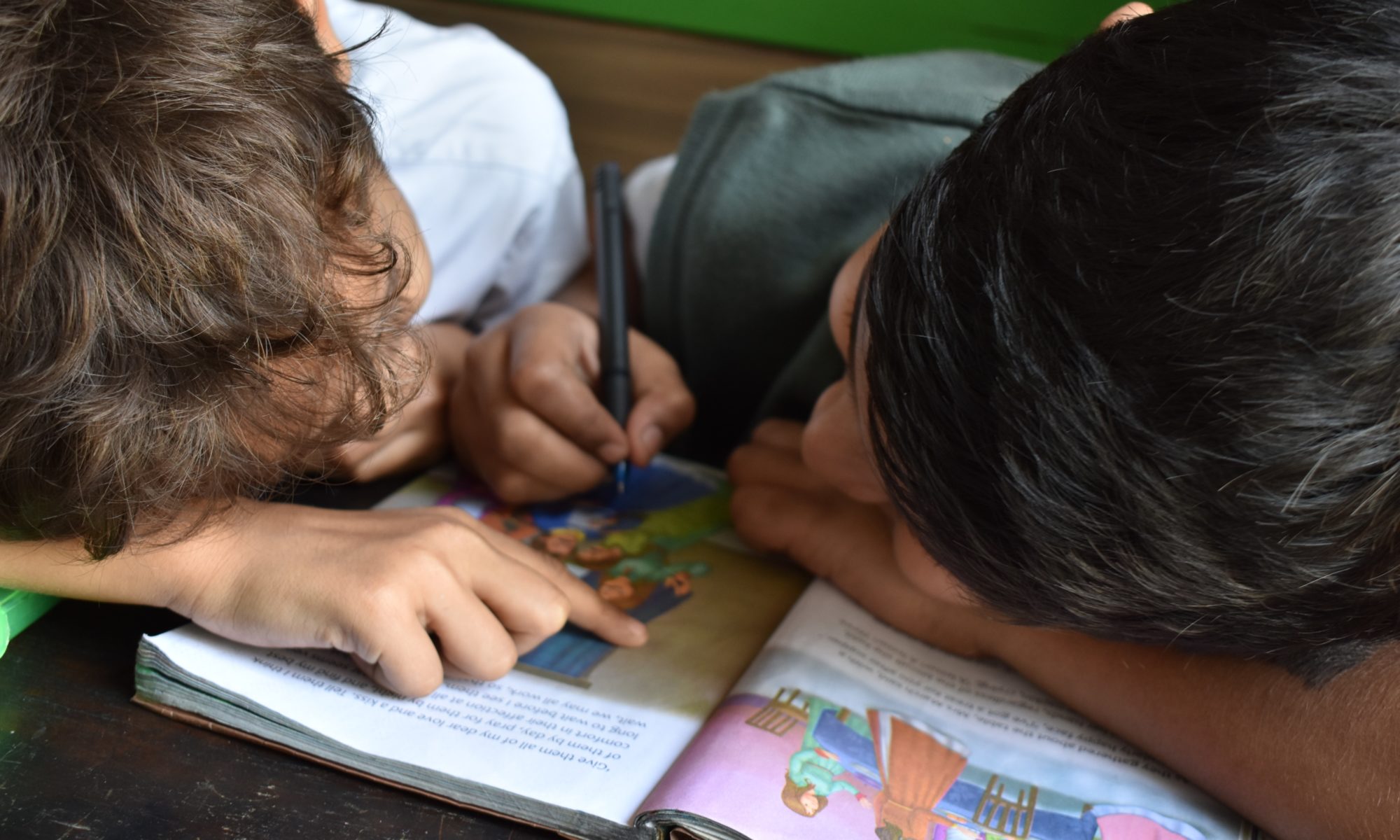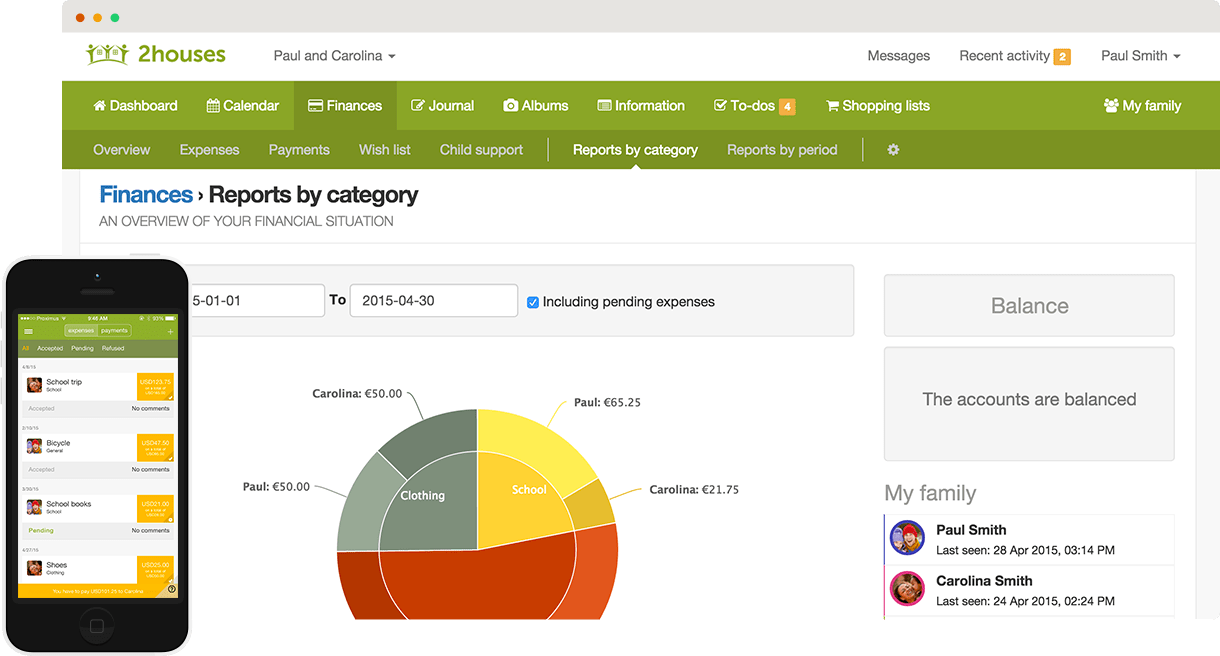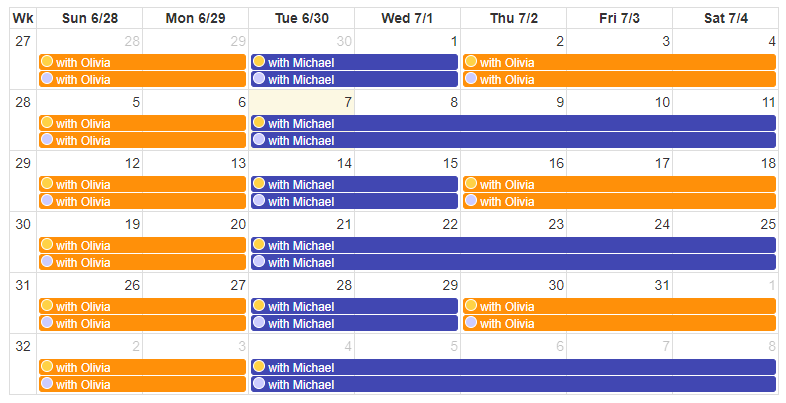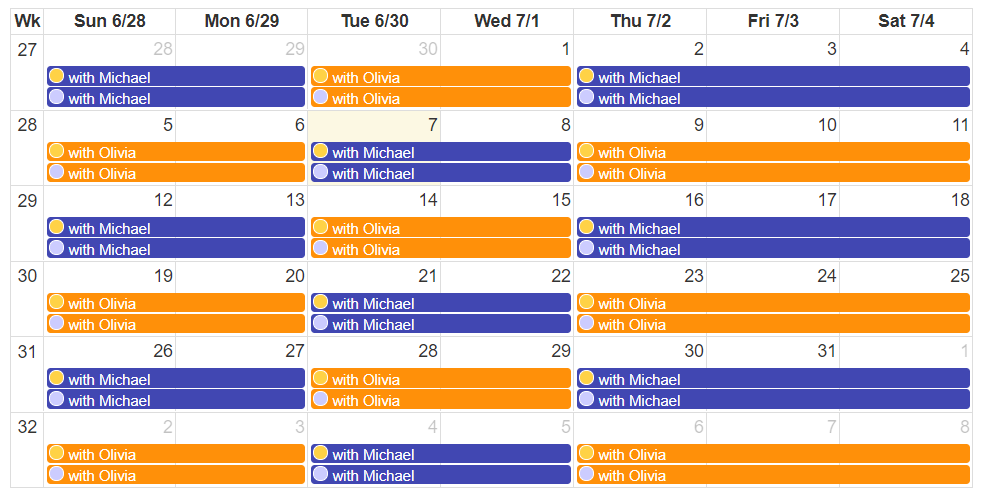One of the best parts of being a parent is watching your children get older. Their personalities develop even more, they can carry on real conversations with you, and they no longer require the constant care that newborns and preschoolers can demand. However, growing up also brings some differences to the divorce process, how the child’s wishes are considered when it comes to custody proceedings, and what issues you may face in trying to co-parent your school-aged children.
Rights of School-Aged Children
While very young children and babies don’t have much to do with the divorce process, the courts do start to consider the wishes of the child in some cases. However, it’s important to understand the difference between your child’s rights and the court’s consideration. For example, in Arizona, the courts consider the child’s wishes when it comes to who they live with. However, this doesn’t mean that they have the absolute right to choose.
The courts are still tasked with making decisions in the best interests of the children, and the judge always has the final say. So even if your child tells the judge that they want to live with you, the other parent can still present a case to the court about why it’s in the child’s best interests to live with them, and the judge will have to make that decision.
It’s set up like this because children don’t always know what’s best for them — as any parent knows. In some cases, a child may just want to live with the most permissive parent who is going to let them do what they want, even if that’s to stay home alone, not have to do homework, or play video games all day. Allowing the child the absolute say in who they live with could also create the problem with the child wanting to switch houses every time they got into a fight with one of their parents. Neither of these situations would really be what is in the best interests of the child, and the courts expect the judge to be able to wade through all of this and make the decision that is in the best interests of the child.
Rights of Children by State
We’ve included a table below of whether or not each state considered the child’s wishes in custody and visitation matters. However, it’s important to keep in mind that laws change on a regular basis and much discretion is left up to the judge. It’s a good idea to always check with a family law attorney familiar with the laws and judges in your area before making any big decisions.
| State | Are Children’s Wishes Considered? |
| Alabama | Yes |
| Alaska | Yes |
| Arizona | Yes |
| Arkansas | Yes |
| California | Not specifically |
| Colorado | Not specifically |
| Connecticut | Yes |
| Delaware | Yes |
| District of Columbia | Not specifically |
| Florida | Yes |
| Georgia | Yes, children 14 and older can decide |
| Hawaii | Yes |
| Idaho | Not specifically |
| Illinois | Yes, children 14 and older can decide |
| Indiana | Yes, for children 11 and older |
| Iowa | Yes |
| Kansas | Yes |
| Kentucky | Yes |
| Louisiana | Yes |
| Maine | Not specifically |
| Maryland | Children 16 and older can ask for custody changes |
| Massachusetts | Not usually |
| Michigan | Yes |
| Minnesota | Yes, depending on age |
| Mississippi | Not officially |
| Missouri | Not specifically |
| Montana | Not specifically |
| Nebraska | Not specifically |
| Nevada | Yes |
| New Hampshire | Yes |
| New Jersey | Not specifically |
| New Mexico | Yes, especially at 14 or older |
| New York | Not specifically |
| North Carolina | Yes |
| North Dakota | Not specifically |
| Ohio | Yes |
| Oklahoma | Yes |
| Oregon | Not usually |
| Pennsylvania | Not specifically |
| Rhode Island | Yes, depending on age |
| South Carolina | Not specifically |
| South Dakota | Yes |
| Tennessee | Not specifically |
| Texas | Not specifically |
| Utah | Not specifically |
| Vermont | Not specifically |
| Virginia | Yes |
| Washington | Not specifically |
| West Virginia | Yes |
| Wisconsin | Yes |
| Wyoming | Yes |
Specific Issues Regarding School-Aged Children
While the main issues when you’re divorcing with school-aged children tend to hinge around custody and child support, there are some other factors that come into play at this age. Understanding what the difficulties and challenges are that can present during this time can help you and your child’s other parent create a plan — or change an existing one — that reflects your child’s wants and needs.
Playdates and Birthday Parties
Once your children are in school, this is often when they really start to make friends and develop social relationships. And with these relationships come more invitations to playdates and birthday parties. In most cases, this is a good thing, but if you have a custody schedule, it can complicate matters — particularly if one or both parents isn’t willing to be flexible or compromise. For example, if you only see your child every other weekend for overnight visitations and they get invited to an overnight birthday party on that weekend, that would be taking some of your time. If the other parent isn’t willing to let you make up the time or switch weekends, it can create conflict.
Extracurricular Activities
The ages of 5 through 12 are often when children start participating in group sports and extracurricular activities or become more invested in these things. Maybe your child just smiled and waved from the baseball field during tee-ball, but now they want to be part of a traveling baseball team. These types of extracurricular activities can put a huge strain on the custody and visitation schedule. While tools like the 2houses calendar feature can help you keep track of who needs to be where when, it may eventually require some additional accommodations to be written out in your official agreement. The cost associated with these things, as well as which activities your child will participate in, are also often points of contention between co-parents.
Emotions and Puberty
While many parents think of puberty and hormones taking hold in the teen years, this process actually starts much younger and the first stages of puberty in girls especially can start as early as age 8. You may notice that your child is more emotional, has more frequent tantrums, or seems to be easily stressed, anxious, or depressed. All of these things can also be made worse by the conflict and change that happens with a divorce.
How to Make It Work
At any state of co-parenting, communication is key, but this is even more true during this time when your children start to develop lives of their own and you may feel more like a chauffeur than a parent. Here are some strategies that may help you navigate this part of the parenting journey.
Talk to an Attorney
The best thing you can do for yourself and your children when you’re trying to figure out what rights your school-aged children have during the divorce process or how you can handle issues that may come up is to be informed. Most often, this means talking to a family law attorney. Many people think of seeking legal counsel as a move toward conflict in the divorce process — or even after the divorce is final. But knowing what the laws are in your state and how the judges in your area usually handle things can actually provide you and the other parent with critical information that can make it easier to come to a compromise or address things out of court.
Even if you just want to make an official change to your custody arrangement that you both agree on — such as who will be designated the residential parent for school purposes — an attorney can ensure that you file everything correctly and help you get through the process as efficiently as possible.
Present a United Front
This is the age when children really start learning to play their parents against each other. They learn that if one parent says no, the other one might just say yes without even ever knowing the first parent already gave a decision. This happens in every household, regardless of marital status, but it’s just logistically easier for children of divorced parents to try to manipulate the parents against each other to get their way.
The two main ways you can help stop this is to make sure that you stay in open, honest, frequent communication with the other parent and learn that it’s OK for your child to be upset with you. When our children are little they throw temper tantrums in the grocery store and we understand that 3-year-olds are like that sometimes, but when they get older, they learn to make reasoned arguments and use your insecurities and parental guilt against you. It can be helpful to have a canned answer, such as “I’ll have to think about it and get back to you” so that you can have the time to talk with the other parent and make sure you’re both on the same page with whatever the issue or request is.












